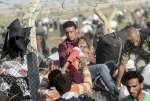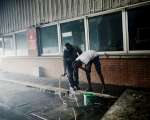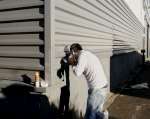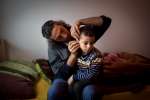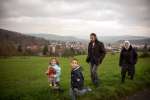- Text size
 |
|  |
|  |
| 
- Français
UNHCR concerned about the conditions of refugees and migrants in Calais and Dunkerque, in particular children
Briefing Notes, 5 February 2016
This is a summary of what was said by UNHCR spokesperson William Spindler – to whom quoted text may be attributed – at the press briefing, on 5 February 2016, at the Palais des Nations in Geneva.
Some 4,000 refugees and migrants are currently reported to be living in the Calais "jungle" and almost 2,500 in Grande-Synthe, on the edges of Dunkerque, often in dire circumstances, aggravated by the winter conditions. UNHCR is specifically concerned about the living conditions of children, in particular unaccompanied and separated children, and would welcome the establishment of additional emergency reception places such as the children's centre (Maison du jeune réfugié) in St Omer (run by France terre d'asile), or other structures responding to the protection needs of children, including those under 15. Furthermore, options for simplifying the child protection procedures, particularly for those children with relatives in another EU Member State, should be urgently explored.
We are pleased to note the various measures taken by the French authorities to provide emergency assistance to the refugees and migrants living in Calais and Grande-Synthe to address the urgent humanitarian needs. These measures include the decision to establish a temporary centre called "Centre d'Accueil Provisoire (CAP)" in Calais, run by La Vie Active, and to organize the voluntary relocation of refugees and migrants to accommodation centres called "Centres d'Accueil et Orientation" (CAO) throughout the country, which provide emergency reception for those willing to avail themselves of it regardless of whether or not they have applied for asylum. As of early February, more than 700 people were hosted in the CAP in Calais and 2,431 people had chosen to go to one of 92 CAOs since the initiative started on 22 October 2015.
In our assessment, the refugees and migrants living in Calais and Dunkerque would benefit from the intensified provision of information and legal advice. In the current situation, residents of the Calais "jungle" receive mixed, sometimes inaccurate and conflicting information from a variety of different sources. Strengthening the coordination among all actors for the provision of assistance, as well as accurate and objective information, would be key, including to people residing in CAOs.
At best, humanitarian assistance provided in these locations is a stop-gap intervention to alleviate the worst suffering. Fundamentally, the individuals concerned need information about their options in France, and those in need of international protection need to be strongly encouraged to seek asylum in France. They also need to be informed of the possible consequences if they do not do so. Another important measure would be ensuring adequate reception facilities, support, including legal assistance, as well as psycho-social care.
Another measure is the use of existing legal provisions for those with relatives in other EU Member States to enable them to join their family members quickly. The recent UK court decision where the asylum tribunal judges ruled that three unaccompanied and separated children and an older brother (dependent of one of the children) should be allowed to join their relatives in the UK while their asylum claims are considered by the Home Office, is a step towards achieving this. UNHCR has long advocated for the pro-active application of the Dublin III Regulation and urges States to use the opportunity to develop an expedited procedure for unaccompanied and separated children in one EU Member State to join their relatives in another.
UNHCR is prepared to support the authorities in all these measures, including, as of 8 February, through an enhanced presence in the Calais region.
For more information on this topic, please contact:
- In London, Andrej Mahecic on mobile +44 78 8023 0985
- In Paris, Celine Schmitt on mobile +33 623 16 1178
- In Geneva, William Spindler on mobile +41 79 217 3011


